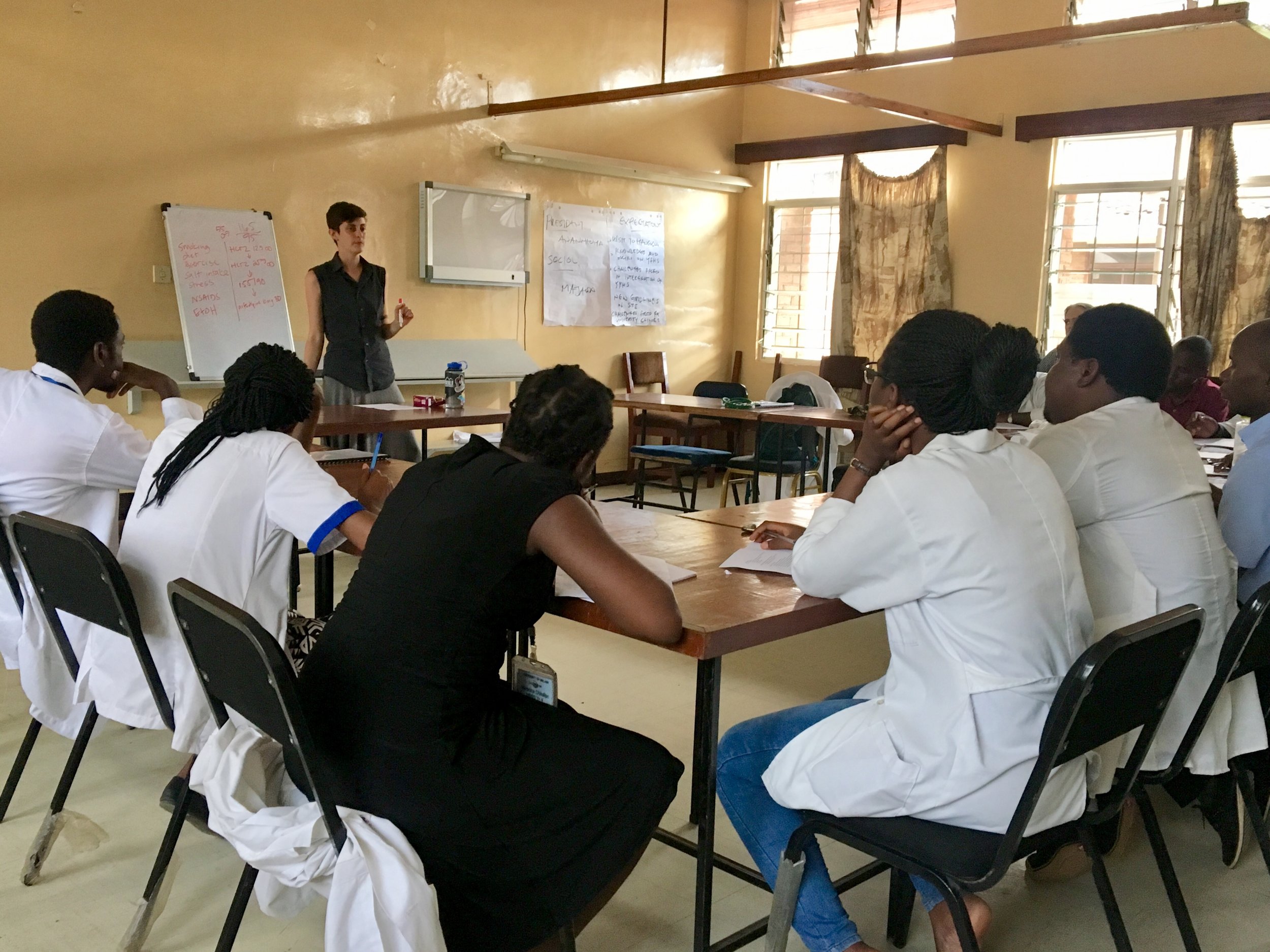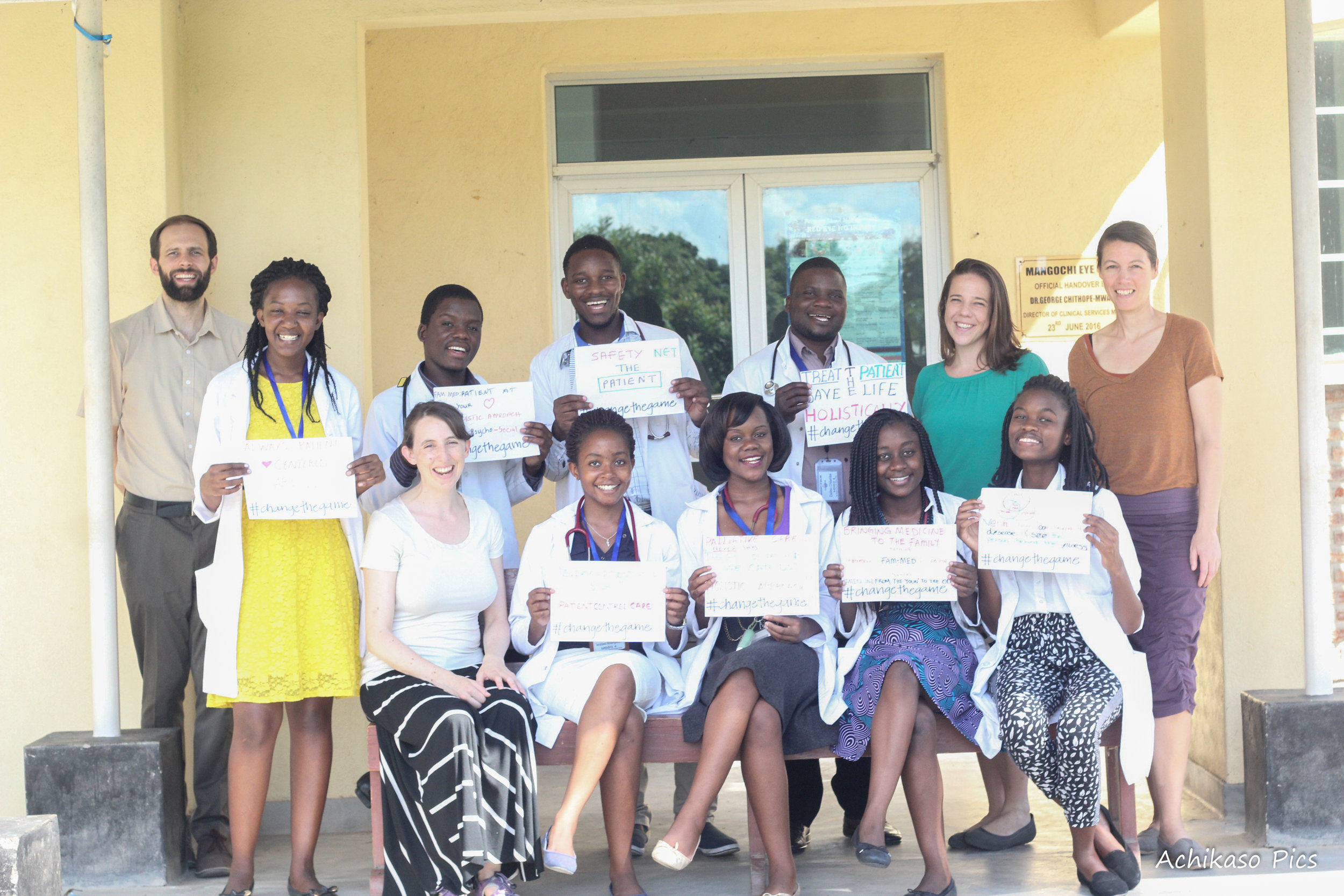Malawi Global Health Program - Swedish Family Medicine Residency
“There are many things in life that will catch your eye, but only a few will catch your heart. Pursue these.”
September 2014 a partnership between Swedish Family Medicine Residency (SFMR), College of Medicine in Malawi (COM) and SEED Global Health formed to increase the academic presence of family medicine in Malawi. This partnership involves a long-term commitment of both faculty and senior residents. The goals of this partnership are to improve the training environment for Malawian medical students and residents, support the health system’s efforts to deliver comprehensive, integrated care, and to provide US residents an opportunity to develop new knowledge and skills and to advocate for individual and community health in resource-poor settings.
Malawi Global Health Rotation Information 2021-2022
University of Malawi, College of Medicine, Department of Family Medicine
University of Washington, School of Medicine, Family Medicine Residency Network (WWAMI)
PROGRAM GOALS
Swedish and affiliated WWAMI Family Medicine residents will work within the current government health system in Malawi to:
• Model Family Medicine presence in the government health system
• Demonstrate full spectrum, patient centered integrated care while working within the structure of health care providers at Mangochi District Hospital.
• Help to create teamwork within the hospital
• When appropriate, teach medical students and residents who are studying family medicine
PROGRAM OBJECTIVES
At the completion of a 4 week rotation in Malawi, a family medicine resident will:
• Discuss the issues of social determinants of health, health equity, social justice, and governmental policy in terms of their impact on the distribution of health services in low-resource settings
• Identify sociocultural and psychological factors influencing health literacy and interaction with the local health system
• Make appropriate evidence-based decisions within a limited resource setting
• Tailor clinical interventions by taking into consideration local socioeconomics, politics, health disparities, and cultural influences
• Demonstrate the ability to communicate effectively and collaborate with the patient, family, and caregivers with sensitivity to sociocultural and health literacy issues so that the diagnosis and plan of care are clearly understood and pertinent to their specific situation
• Recognize his or her own practice limitations and seek consultation when appropriate
• Recognize his or her own biases and stereotypes related to health care delivery in International settings
• Demonstrate a commitment to sustainable interventions of health care delivery in Malawi
• Assess availability and safety of medications and other treatments in Malawian context
• Cite non-medical issues (e.g., political, safety, environmental, and climate factors) unique to practicing in Malawi.
• Cite specific safety factors, legal considerations, and personal freedoms that might be handled differently when taking part in health care delivery in Malawi



For more information or questions please contact:
Anna McDonald MD, MPH - Anna.McDonald@swedish.org
Jacob Nettleton, MD - Jacob.nettleton@gmail.com
Jesse Zayas - jesse.zayas@swedish.org (Malawi Rotation Coordinator)
Carrie Schonwald - Carrie.Schonwald@providence.org (*providence residents only*)
Special thanks to Stevie Mann with IRLI for taking and allowing use of the Malawi farm landscape picture!
